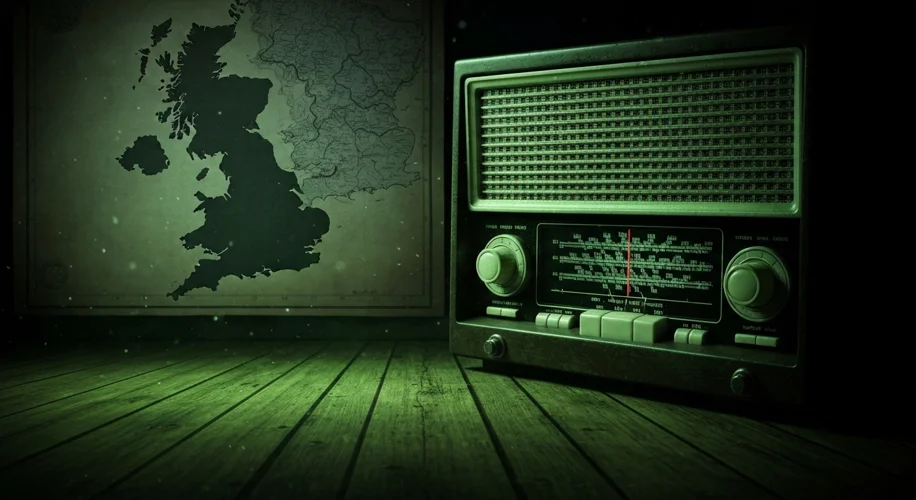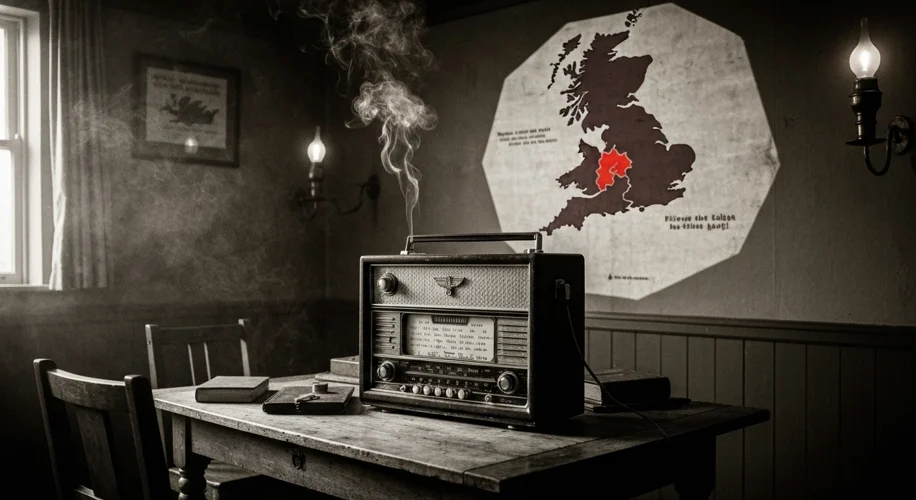The airwaves of the Second World War crackled not only with Allied resolve but also with the insidious whispers of enemy propaganda. While much of this was delivered in familiar tongues, a particularly chilling tactic involved the subversion of native languages to sow discord and undermine morale. In the heart of Nazi Germany, a peculiar voice emerged, speaking directly to the Welsh people in their own ancestral language, attempting to turn a proud heritage into a tool for betrayal.
Little is definitively known about the precise individual behind these broadcasts, often transmitted from Germany’s clandestine radio stations. However, the phenomenon itself points to a sophisticated understanding of psychological warfare by the Third Reich. The goal was clear: to exploit any existing grievances or foster new ones within the Allied nations, to create a wedge that would weaken their collective front against Nazi aggression. For Britain, with its strong regional identities, targeting specific linguistic groups was a logical, albeit deeply distasteful, strategy.
The broadcasts, emanating from stations likeahnreichsfunk (Reich Radio), utilized the Welsh language, known as Cymraeg. This was not a mere curiosity; it was a calculated move. For decades, there had been nationalist sentiments within Wales, a desire to preserve and promote its unique culture and language, which had been suppressed for centuries under English rule. Nazi propagandists, adept at identifying and amplifying societal fault lines, likely saw this as fertile ground. They aimed to present themselves not as conquerors, but as liberators, offering a false promise of Welsh independence or greater autonomy, all while denigrating the British war effort and its leadership.

One can only imagine the disquiet these broadcasts would have caused among the Welsh populace. For many, hearing their language twisted into a vehicle for enemy propaganda would have been deeply offensive and confusing. It was an assault on their identity, a perversion of a cultural treasure. The BBC, Britain’s own wartime broadcaster, worked diligently to counter these messages, often by providing alternative programming in Welsh that emphasized national unity and the common fight against Nazism. Figures like Saunders Lewis, a prominent Welsh nationalist and writer, found themselves in a difficult position, torn between their linguistic loyalties and their opposition to the Nazi regime.
The impact of these broadcasts is difficult to quantify definitively. Unlike overt military actions, propaganda’s effects are subtle and often immeasurable. However, historical accounts suggest that while the majority of Welsh people remained loyal to the Allied cause, the broadcasts did cause some consternation and certainly represented a psychological battleground. The Nazis were attempting to weaponize culture, to turn a language into a tool of division. The fact that they invested resources into broadcasting in Welsh indicates a belief, however misguided, that it could yield results.
This episode serves as a stark reminder of the multifaceted nature of total war. Beyond the trenches and the bombing raids, a war was also being waged in the minds of civilians, fought with words and cultural symbols. The Nazi use of the Welsh language for propaganda was a particularly insidious example of this, demonstrating how even deeply cherished cultural elements could be co-opted and distorted by an oppressive ideology. It highlights the enduring power of language and the importance of safeguarding it, not just as a means of communication, but as a bulwark against manipulation and a vessel of identity and heritage.
The story of the Welsh voice of Nazi propaganda is a somber footnote in the history of World War II, a testament to the lengths to which ideological warfare could extend, reaching into the very heart of cultural identity to sow seeds of dissent.

